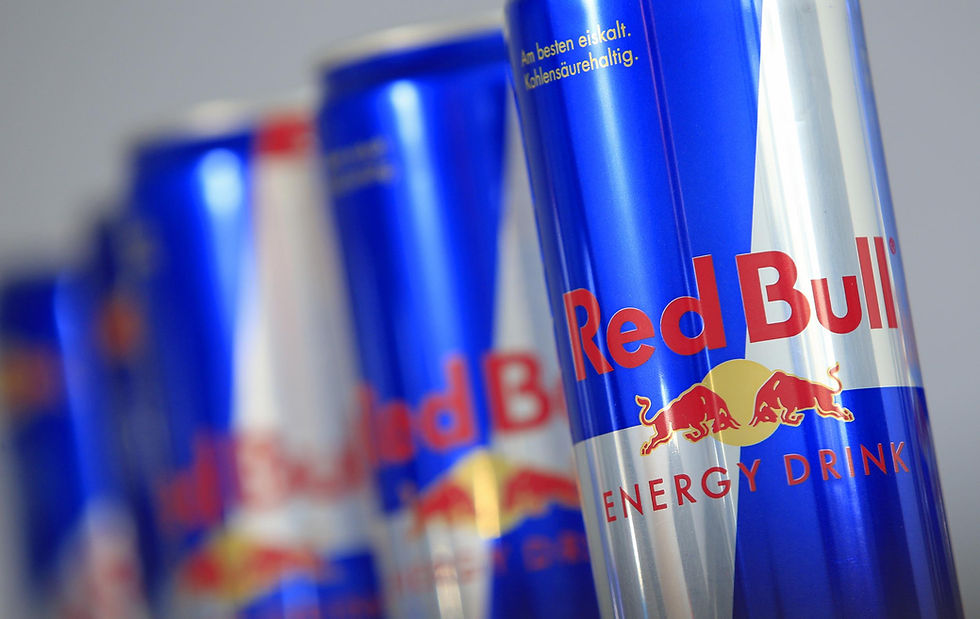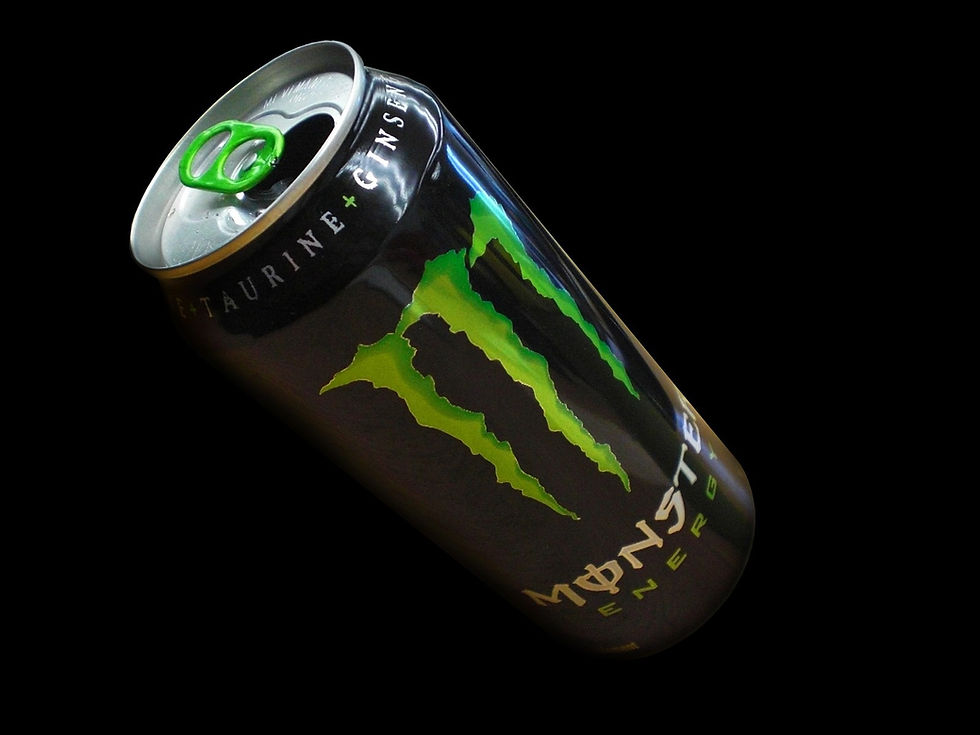SOS - Saviour or Saboteur of Service?
- marketing191949
- Feb 21, 2022
- 3 min read
For a long time we've known that our hospitality teams are run on creativity, passion and.... Well energy drinks and caffeine, but have we ever stopped to consider the impacts of a life on chemically fuelled adrenaline? Energy drink cans are no strangers to both FOH and BOH environments and have grown in popularity over the last few years.

When questioned why our peers consume such large amounts of these high caffeine and high sugar drinks, we're met with responses such as "it helps get me ready/through service" or "because I'm tired", or even "I feel like I need it".
Like with many elements of hospitality we can chalk this down to "that's just the way things are" but when we stop to consider the "why" and the impact of our reliance upon these products would we still consider this a viable option for ourselves and our teams?
Energy drinks have been under attack previously with lawsuits being waged by parents after their sons and daughters develop health complications such as cardiac arrest and diabetes.
The drink label says it’s not intended for use in those under 18, and previous research suggests that kids are particularly susceptible to caffeine overdoses triggered by an over consumption of these beverages.

Consumer Reports found that Monster Energy contained 92 milligrams of caffeine per 8-ounce serving; that compares to 100 mg in an 8-ounce cup of coffee. Starbucks Short (8-ounce) espresso drinks — latte, cappuccino, macchiato — have 75 to 90 mg of caffeine.
But serving sizes can be misleading since many consume whatever’s in the container. The most popular Starbucks size is Grande (16-ounces), which has twice as much caffeine. Monster Energy cans come in 24-ounces, which is 276 mg. While a little caffeine can increase alertness, boost mood, and give you more energy, too much can cause heart palpitations, anxiety, nausea, dizziness, high blood pressure, and insomnia. Not to mention the increased risk of sugar related health problems as well a reduction in performance as sugar levels spike then begin to level off. The question is why do we see that these products are so prominent within our work environments in the first place?
Is it great marketing, limited education, social acceptance, or our bodies way of craving the energy and boost it needs to deal with long hours and high stress? Maybe a combination of all of the above?
It's far too easy to blame the energy drink manufacturers for producing a product that is so easily accessible however we need to start looking at the reasons why our teams are becoming reliant upon high caffeine and high sugar intake.
Stripping it back a little the human body naturally craves high sugar, caffeine and carbs as a result of our natural stress response. As cavemen and women in time gone this provided us with the fuel source and energy boost that we needed in order to fight or flee danger.
Despite our environments changing, the evolution of the human brain, and our environments not providing the same level of risk as they were back in Stoneage times our bodies are still reacting in a biological response to stress in the same way it always has.
Perhaps the key to unlocking a reduction in reliance on these products does not lie in forceful bans but in fact from education and looking at ways in which we can mitigate stress from our working environment to reduce the need for our bodies and brains to impulsively demand this stimuli?
Things to consider include additional rest periods, upskilling team members to improve their resilience, introducing mindfulness or mid service deep breathing techniques or focussing on work environment layouts and impacts.
If you’d like to learn more about the ways in which we can start to tackle workplace stress and reduce the need for caffeine, substances, alcohol and carbs then please head over to The Burnt Chef Academy, over to our blog on our website or listen to The Burnt Chef Journal.








Comments